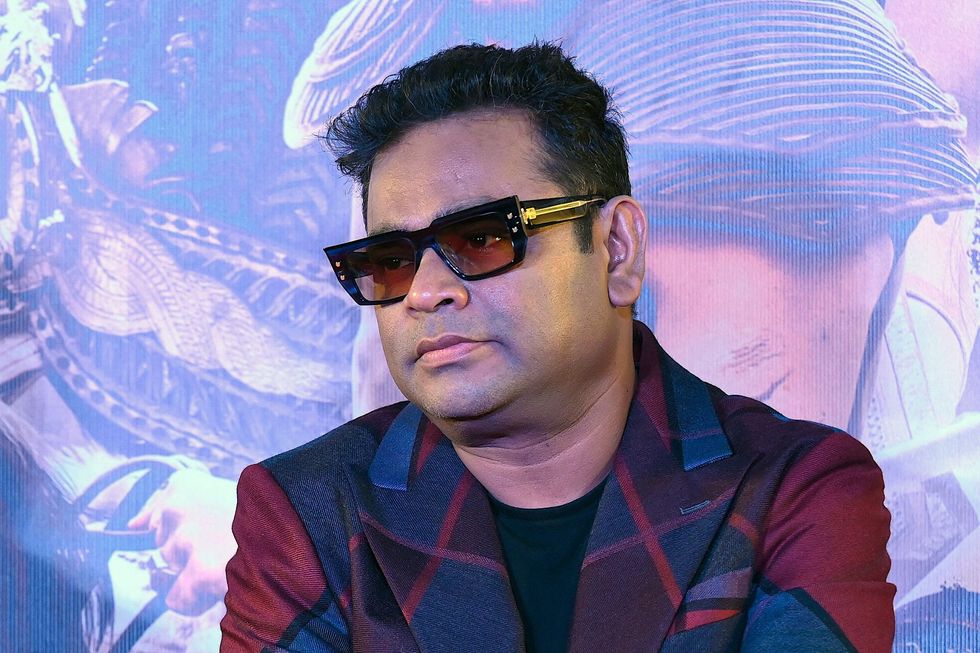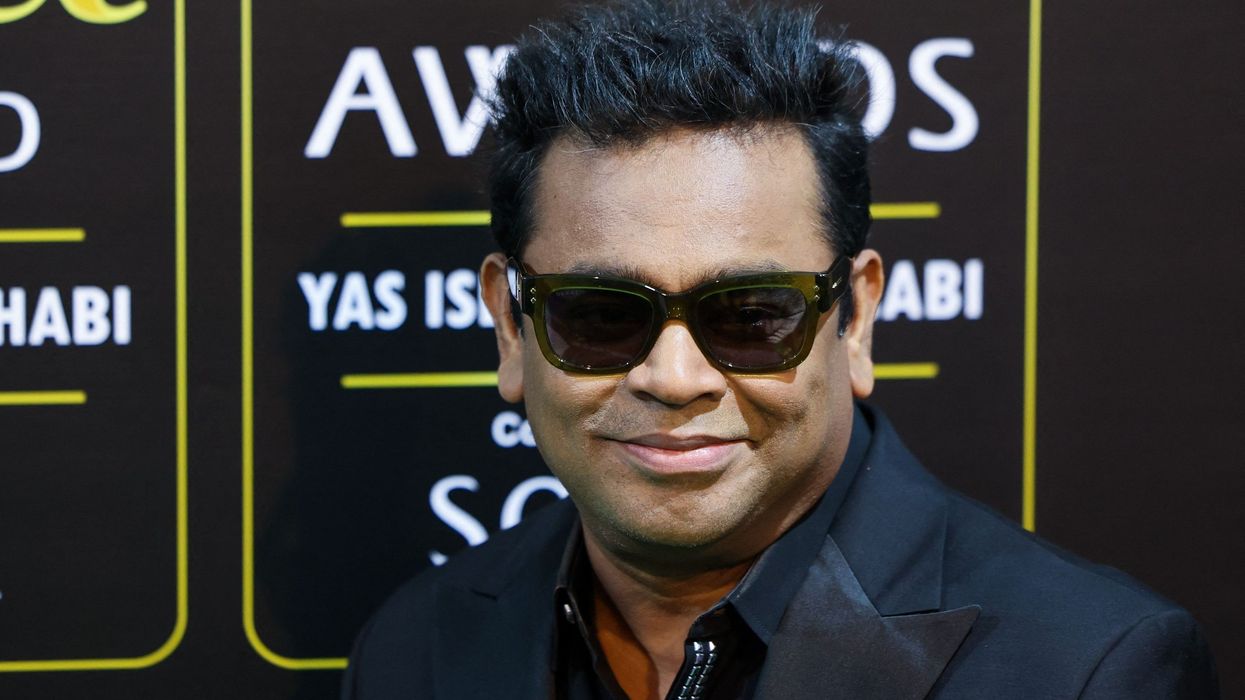Like there are multiple colours in a rainbow, India has different cultures, languages, and film industries and it’s time for the world to acknowledge it, says AR Rahman, the artiste whose music covers genres and geographies.
Rahman, who has worked in the south, in the Hindi film industry as well as in Hollywood, Broadway on the London stage, burst into the music scene with Mani Ratnam's Roja in 1992. As he gets ready to celebrate three decades of music with a series of concerts, the double Oscar winner said the Academy Award for "Naatu Naatu", a Telugu song from RRR, gave a glimpse into the versatility of talent from India.
"The world believes that the only film industry that exists is the Hindi film industry which we call Bollywood. It's so nice to see “Naatu Naatu”, a Telugu song, winning the Oscars. I never use the word Bollywood since it's so convenient and derivative of Hollywood. I keep correcting everyone when they use these terms," Rahman told PTI in an interview.
He won two Oscars for “Jai Ho” from Slumdog Millionaire in 2009 – one for best original score and the other for best original song. Rahman also won a Grammy as well as a Golden Globe for Slumdog Millionaire.
Rahman, 56, said there are many film industries in the country –Tamil, Telugu, Kannada, Malayalam, Punjabi, Gujarati, and Bengali.
"It's important that the world has to see there are amazing talents there. If they are given money and exposure, they can come up with stunning stuff and that's how it should be as India is varied which is not one culture but rather multiple cultures like a rainbow," he added.

Rahman is set to hold the "Marakuma Nenjam" (loosely translated from Tamil to mean ‘will my heart be able to forget this’) concert to celebrate his extraordinary career. He said he always wanted to do "something special" and he got that in his career.
He said he realised just a year before signing for Roja that only composing for films would bring the financial gratification “so that you can expand your studio”.
"But I always wanted to do something special and the special thing came, god gave me the thing that I manifested," he said, crediting "friend and mentor" Ratnam, filmmakers Shankar, Ram Gopal Varma, and Subhash Ghai.
"It was a blessing to have them," he added.
While he has done many films for Ratnam, including the latest Ponniyin Selvan, parts one and two, he did Enthiran, Sivaji: The Boss for Shankar, Rangeela for Varma, and Taal for Ghai.
He won a National Award and a Filmfare trophy for Roja. Going to England and working with Andrew Lloyd Webber on the Bollywood-themed musical Bombay Dreams was a "real eye opener", he said.
The musical was staged on the West End in London as well as on Broadway in New York.
"Webber made me realise where I was and where I could be. The last 20 years of what is happening is because of the eye-opening invitation which Andrew Lloyd Webber called me to write music. This is the main thing that led me to Hollywood, doing 'Slumdog Millionaire'," he said.
The composer is of the opinion that musicians need to go back to ancient poetry and ragas that the country has had for over 3,000 years.
"I personally feel we can go more backward to ancient poetry. Somewhere I find people not adopting ragas or the literature, the resources, and the poetry we have which are 3,000 years old. Bringing that back like we had fun doing Ponniyin Selvan part one and two we had done some research and brought back the 'Devarattam' or ancient poetry," he said.
"Marakkuma Nenjam" will be first staged in Chennai on August 12 before going on to other cities and countries.
"I have been receiving love for the last 32 years and people kept questioning why I am performing in the USA, London, Singapore, Malaysia and why not in Chennai. "As of now more than 40,000 tickets got sold, I couldn't believe it, two rows are sold out. So my idea is that even though Chennai lacks infrastructure for big concerts, now it's a big test to see what we need here. So this is like a test to conduct a big concert," he said.
The concert will also travel to Paris, France, Germany, and Switzerland for the first time.




